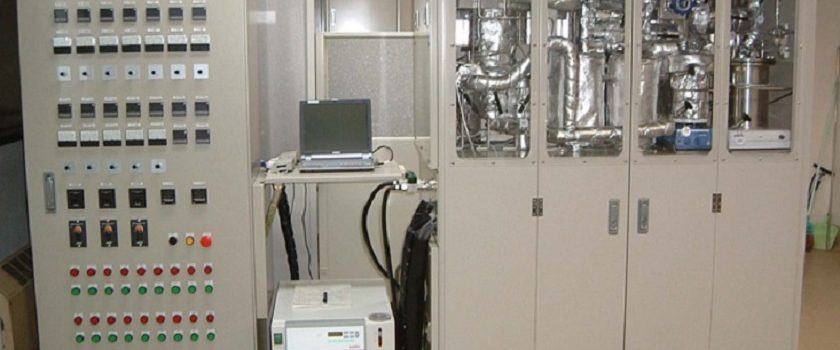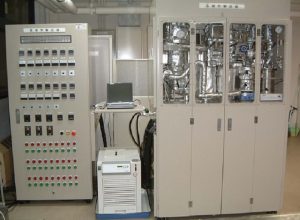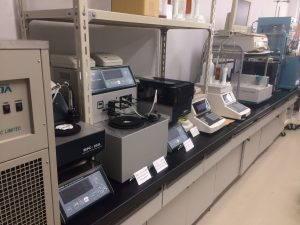Biodiesel (fatty acid alkyl esters) is produced from plant oils such as soybean and palm oils and used as a substitute for fossil diesel fuel. In Kyoto, biodiesel from waste cooking oils is used for city buses and garbage trucks. Although the alkaline-catalyzed transesterification is a typical method to produce biodiesel, it requires a complicated purification process after the reaction and cannot apply to feedstocks that contain water and free fatty acids due to undesired saponification reaction.
Therefore, our laboratory has developed various catalyst-free processes based on supercritical fluid technology. The supercritical methanol method can apply to waste oils and fats containing water and free fatty acids. The following photographs are a biodiesel production system by two-step supercritical methanol method and various biodiesel testers in our laboratory.
In recent years, we are trying to develop the hydrocarbon production process by catalytic hydrotreating. In addition, the thermodynamic study of biodiesel and fossil diesel blends are also conducted for predicting fuel cold flow properties.
Biodiesel production system by two-step supercritical methanol process
Various biodiesel testers
(Cloud point, pour point, cold filter plugging point, flash point, oxidative stability, etc)



